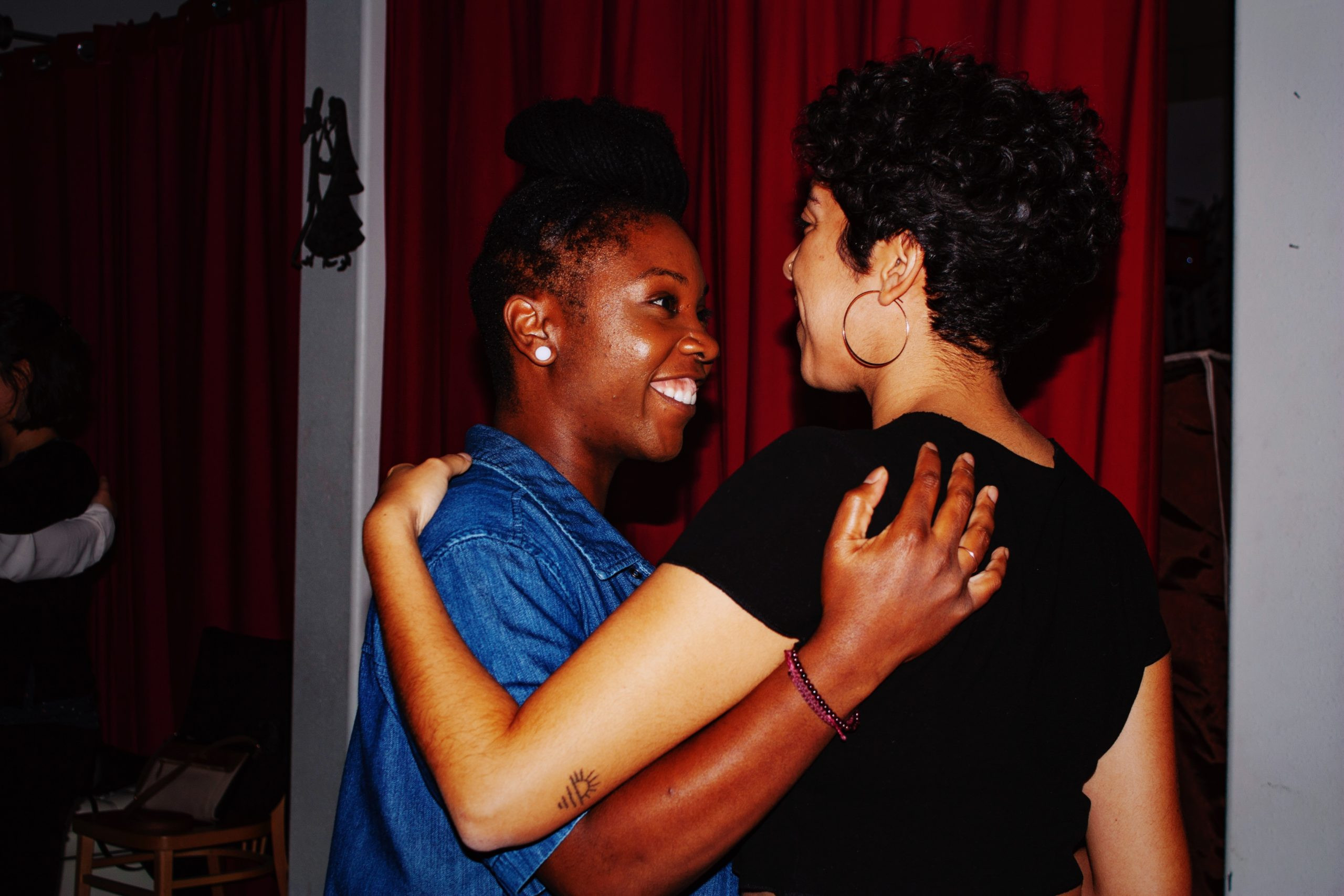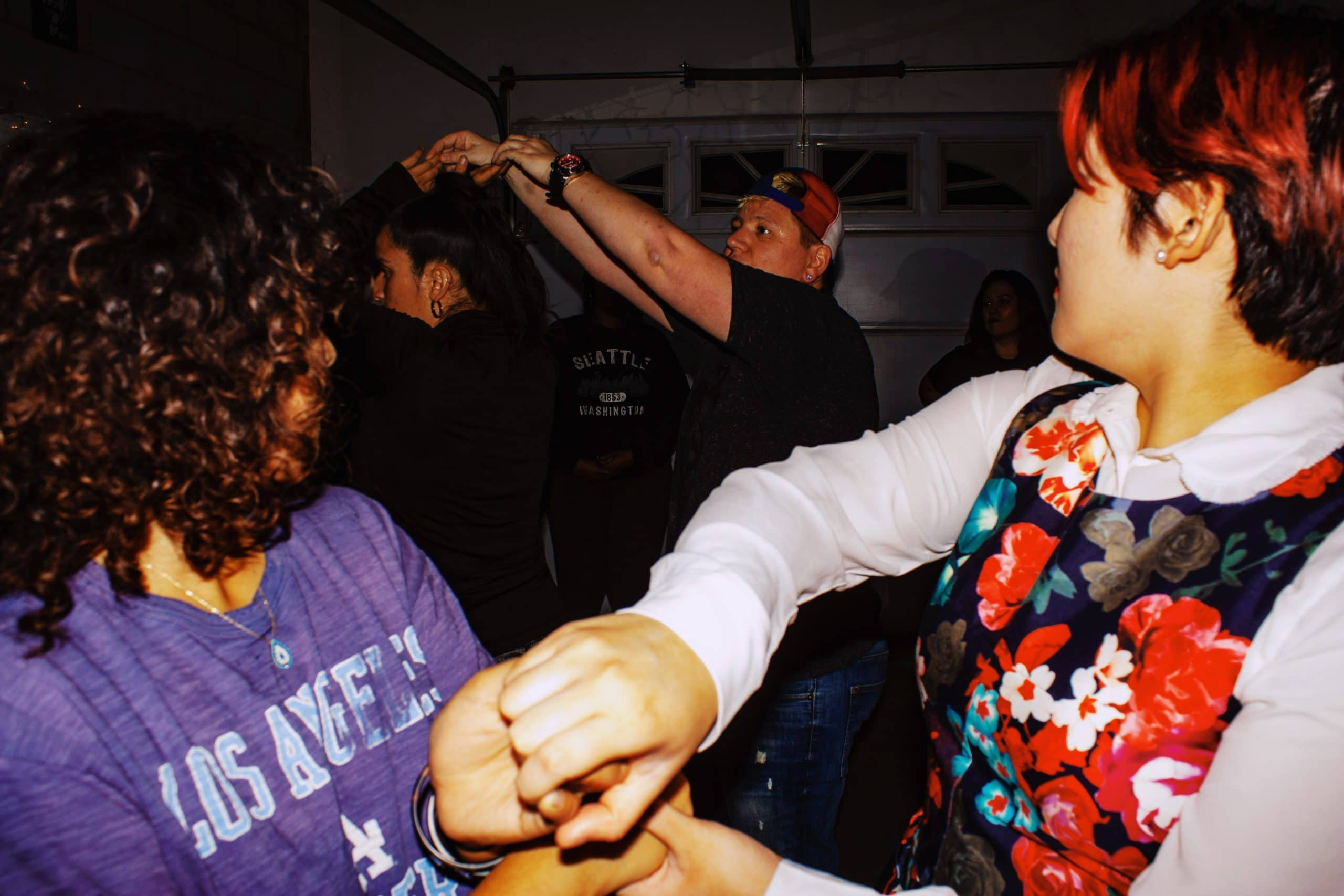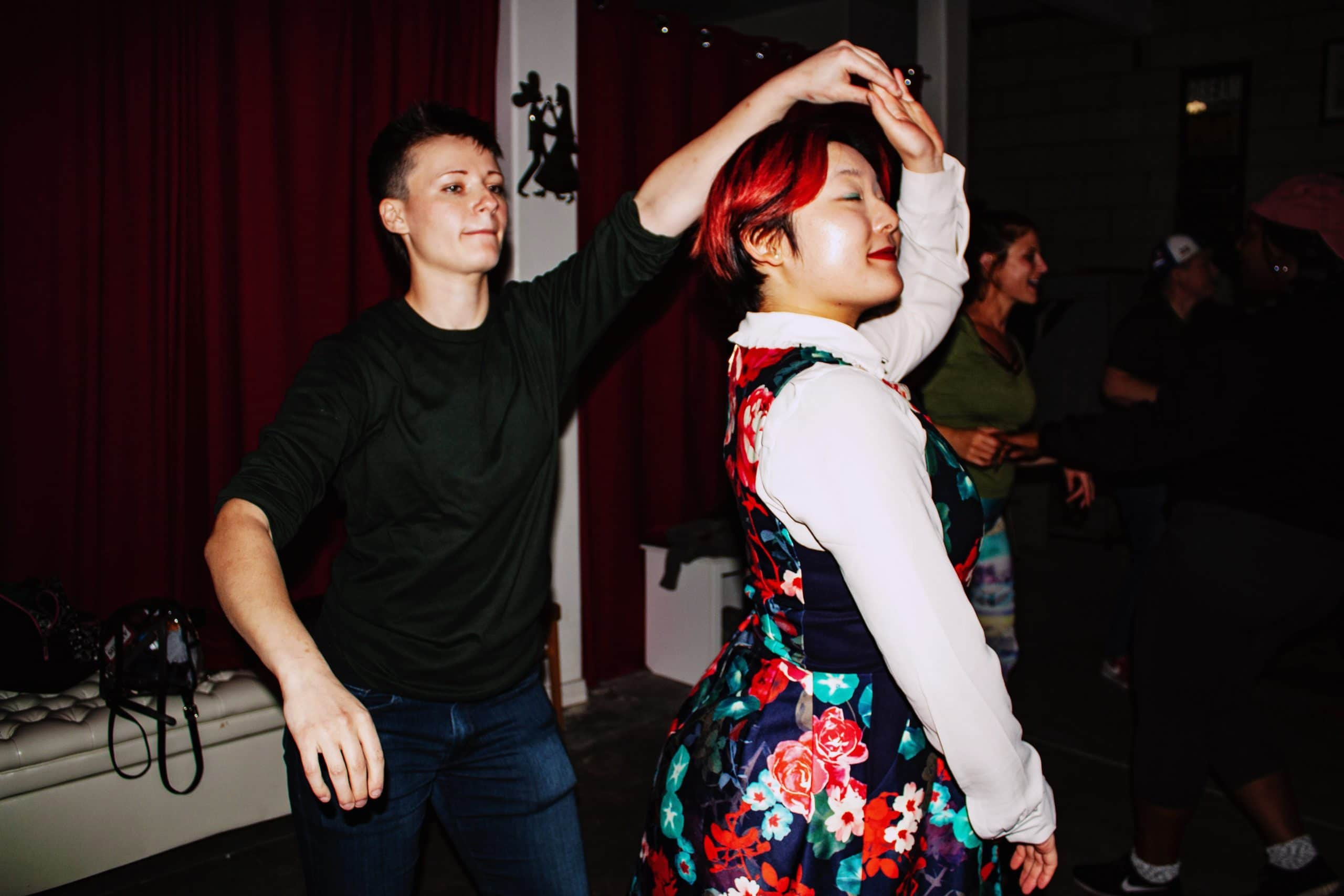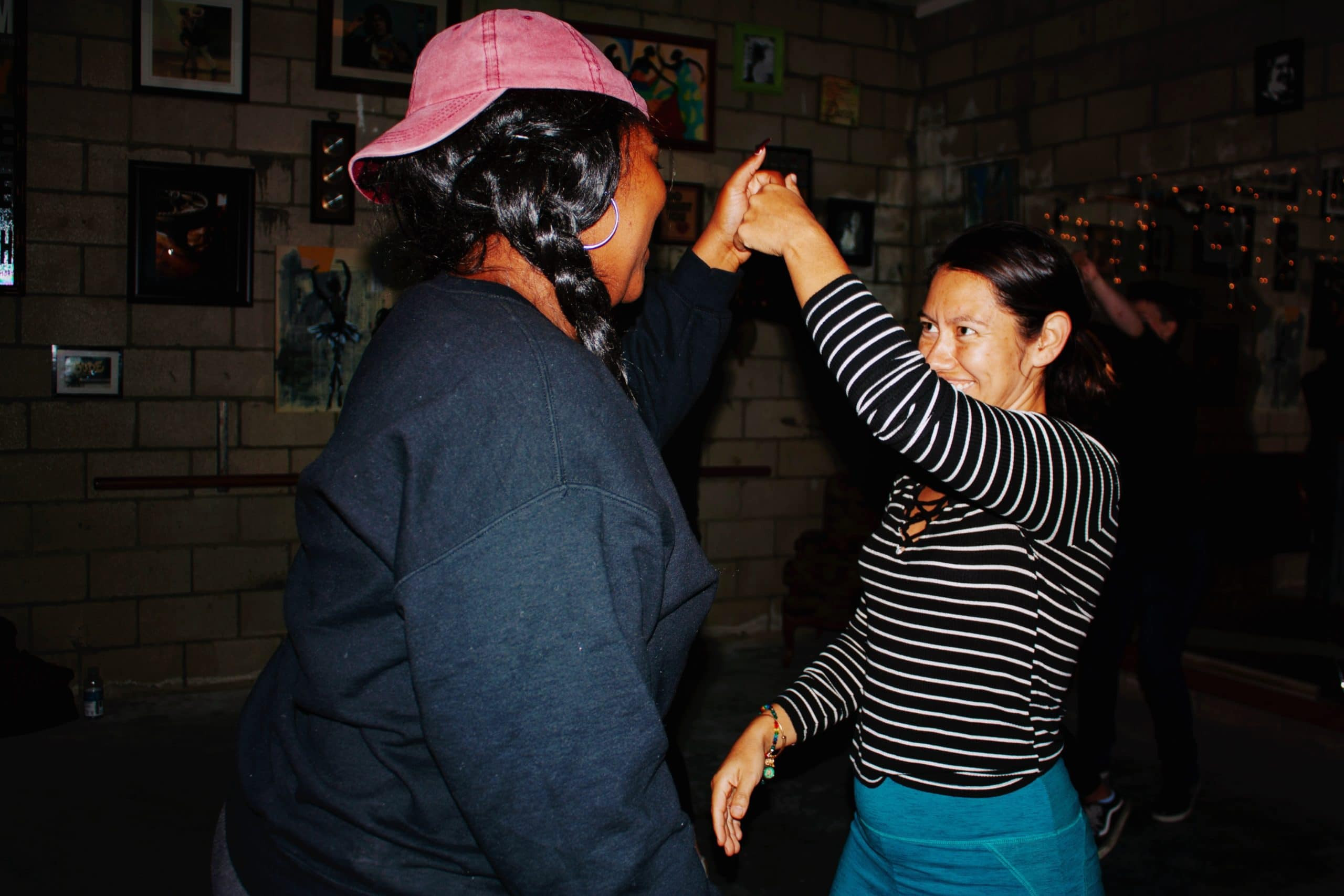Two months ago, a visit to San Francisco sparked an unexpected passion for Latin dance. It all began when I joined my queer Latina friend at a cumbia night. Having known her for over a decade, I was astonished by her dancing skills, especially her lead – a skill you don’t often expect, or see celebrated, in queer spaces. Dancing with her was liberating and ignited a love for Latin rhythms. This newfound joy, however, was quickly shadowed by an uncomfortable encounter with harassment from a man when we ventured into a straight club.
Seeking refuge and a more inclusive environment, we moved to a gay bar. The stark contrast in atmosphere was palpable – we felt safe, liberated, and truly free to express ourselves on the dance floor. This experience highlighted a crucial desire: to merge my burgeoning love for Latin dance with the safety and acceptance of the queer community back home in Los Angeles.
Upon returning to LA, my search for “queer Latin dance nights” proved surprisingly unfruitful. It seemed this specific intersection of community and dance was missing. Serendipitously, Instagram led me to @queertrans_events, who had reposted a flyer from Queer Latin Dance LA promoting their salsa and bachata classes in Highland Park. This discovery was a beacon, promising exactly what I was searching for: Latin Dance Lessons in a space crafted for and by the queer community.
 Arlene Santos and Karin Gut, co-founders of Queer Latin Dance LA, teaching a salsa class in a garage.
Arlene Santos and Karin Gut, co-founders of Queer Latin Dance LA, teaching a salsa class in a garage.
“I want people to feel that when they come to the studio or to my class that they’re coming to my house. And they do, right?” Arlene Santos, instructor and co-founder of Queer Latin Dance LA, says with a warm laugh. Her garage, transformed into a welcoming dance space, embodies this home-like feeling.
Queer Latin Dance LA offers weekly latin dance lessons in salsa and bachata every Tuesday from 7:30 PM to 9 PM, monthly dance socials on the first Saturday, and even a dance team. To our knowledge, they stand as the only dedicated queer Latin dance community in Los Angeles. Founded and taught by Arlene Santos and Karin Gut, their mission is to make latin dance lessons accessible and enjoyable for queer individuals, fostering an equitable and safe community space. While Santos identifies as straight, her collaboration with Gut, who is queer, began organically. About four years ago, Gut, seeking latin dance lessons for her LGBTQ+ meetup group, approached Santos, who excitedly embraced the idea. Their partnership blossomed from Gut initially having, in her words, “two left feet and three left hands” as a student in Santos’s Pasadena studio, Lumina Dance Academy, to her now co-teaching and leading the queer community in dance.
“There are also men who think, ‘Well I’m a macho man, I’m the leader of this dance,’ and ‘a woman? What are you trying to do here? Be a man? I’ll show you how to lead.’”
“It’s important to me because I want to create a safe, welcoming space for everybody in the LGBTQ community to come learn how to dance, be comfortable, be themselves, not being looked at funny,” explains Gut, emphasizing the core value of their latin dance lessons.
Overcoming Two Left Feet in a Welcoming Environment
Gut’s personal journey with dance before Queer Latin Dance LA was marked by discomfort and exclusion. Whether at lesbian or straight bars, her attempts to dance were often met with assumptions of unwanted advances or outright rejection, especially from women in straight spaces who felt uneasy dancing with another woman. This led her to approach potential dance partners with a sense of resignation, head down, just to “get it over with” and avoid unwanted attention.
 Karin Gut leading a bachata lesson, demonstrating a step with a student in a garage setting.
Karin Gut leading a bachata lesson, demonstrating a step with a student in a garage setting.
“There are also men who think, ‘Well I’m a macho man, I’m the leader of this dance,’ and ‘a woman? What are you trying to do here? Be a man? I’ll show you how to lead.’”
This series of negative experiences fueled Gut’s determination to create a safe haven for queer individuals to explore latin dance lessons without fear of judgment or harassment. About five years ago, this vision began to materialize when Gut and Santos offered their first LGBTQ+ dance classes at the Oxwood Inn, a lesbian bar in Van Nuys. After the bar’s closure, they persevered, moving their classes to various spaces before settling in Santos’s garage. It was about a year and a half ago that they officially became Queer Latin Dance LA. Currently, their latin dance lessons are structured with Santos teaching salsa followed by a break, and then Gut leading the bachata session.
For my first class, I was nervous to go to someone’s house I didn’t know, so I brought a friend. Almost the entire class, we laughed at how terrible we were at dancing, but unlike in ballet classes, laughing wasn’t received with scolds or glares, it was welcomed.
My own first experience mirrored this initial hesitation. Nervous about attending latin dance lessons at a stranger’s house, I brought a friend for moral support. To our relief, the atmosphere was instantly welcoming. We spent much of the class laughing at our clumsy attempts, a stark contrast to the rigid environment of my past ballet training where such lightheartedness would be met with disapproval.
 A group of students practicing salsa steps during a Queer Latin Dance LA lesson in a garage studio.
A group of students practicing salsa steps during a Queer Latin Dance LA lesson in a garage studio.
Having dedicated 14 years to ballet, even performing with a dance company, I was accustomed to a hierarchical and often critical learning environment. Ballet teachers were typically authoritarian, creating a high-pressure atmosphere where tears were not uncommon. Physical corrections were often forceful, involving rulers to check posture and feet pressed to enforce turnout.
Compared to the structured and often isolating world of ballet, latin dance lessons, especially in the Queer Latin Dance LA setting, are a world apart. Partner dancing in ballet is limited and often gender-defined. Ballet’s emphasis on rigid lines and perfect form contrasts sharply with the fluid hip movements, body rolls, and ribcage circles central to Latin dance. Furthermore, the prescribed ballet attire of tights, leotard, and a tight bun offers little room for personal expression and can feel restrictive and gendered. The high-stress, high-pressure environment of ballet is the antithesis of the supportive and joyful atmosphere I discovered in my latin dance lessons at Queer Latin Dance LA.
“When you’re dealing with something that has ingrained gender roles, you need a space that is open and accepting and playful in order to figure out how those gender roles can be rearranged and reclaimed…”
Enthralled by my initial class experience, I became a regular, also attending their dance socials. Socials involve dancing one song with various partners before rotating. In contrast to classes where partners rotate frequently, socials offer a more fluid dynamic. I danced with people of all ages and skill levels, from seasoned dancers to fellow beginners. Other students echoed my positive impressions, highlighting the accessibility for the queer community, the welcoming nature for beginners, and the overall sense of safety in this unique dance environment.
“When you’re dealing with something that has ingrained gender roles, you need a space that is open and accepting and playful in order to figure out how those gender roles can be rearranged and reclaimed…” This insightful observation comes from Zenzele Price, a student who appreciates the thoughtful approach of Queer Latin Dance LA.
 Arlene Santos demonstrating a lead in salsa to a student, emphasizing the inclusive approach to gender roles.
Arlene Santos demonstrating a lead in salsa to a student, emphasizing the inclusive approach to gender roles.
Santos elaborated that in typical latin dance lessons, instructors often segregate participants by gender, with “ladies to one side, and gentlemen on the other.” However, influenced by her work with the queer community, she has shifted her teaching methodology in all her classes, queer or not, to “leads on one side, and follows on the other.” This simple yet profound change reflects a broader societal shift towards inclusivity. “As society is adapting, things like that are becoming more and more normalized. Queer people need to learn how to dance together too!” Price aptly points out, emphasizing the importance of inclusive latin dance lessons.
Reclaiming and Redefining Gender Roles in Dance
Indeed, queer individuals deserve and need spaces to learn and enjoy dance on their own terms. Stepping into a dance class with no prior experience can be daunting, but Queer Latin Dance LA intentionally mitigates this initial fear. Several students recounted their initial apprehension, highlighting how quickly it dissipated in the welcoming atmosphere. Bailey Albinger, a student, expressed her pleasant surprise at how “very open and slow-moving” the classes were, catering to absolute beginners.
Gina Cho echoed this sentiment, stating, “I feel comfortable because it’s for people of all…they can be beginners, they can have no experience dancing, and there’s no judgment if we have trouble picking up a step, and everyone is really nice and friendly.” This emphasis on non-judgment and support is a cornerstone of their latin dance lessons.
“A lead and a follow should be something where you’re equal. That’s why I like being in this space because I feel like I’m equal with whoever I’m dancing with, and standing outside of that patriarchy and domination.”
While not all mainstream Latin dance clubs are inherently negative, many unfortunately harbor toxic elements such as sexual harassment, violence, and an unwelcoming environment for LGBTQ+ individuals. My own recent experience is a stark reminder of the vulnerabilities women and LGBTQ+ people face in some Latin dance settings. The tragic Orlando Pulse nightclub shooting at a Latin night just over three years ago underscores the very real dangers. Students at Queer Latin Dance LA shared stories of feeling “less agency” in other dance spaces, experiencing sexual harassment, and being unable to fully relax due to constant vigilance, as recounted by Michelle Rodriguez and Hannah Woods.
 Two women dancing salsa together in a close embrace, showcasing the partnership aspect of Latin dance.
Two women dancing salsa together in a close embrace, showcasing the partnership aspect of Latin dance.
“A lead and a follow should be something where you’re equal. That’s why I like being in this space because I feel like I’m equal with whoever I’m dancing with, and standing outside of that patriarchy and domination,” Rodriguez articulated, highlighting the empowering dynamic within Queer Latin Dance LA’s latin dance lessons.
Gut further elaborated on the toxic experiences faced by LGBTQ+ individuals in straight clubs, including being overlooked or rejected for dances. She recounted instances where, when seen dancing with Santos, she would be excluded from dances for the remainder of the night.
The Unique Vibe of Queer Dance Festivals
“Everybody should be able to learn to dance and feel comfortable,” Santos passionately stated, encapsulating the inclusive ethos of their latin dance lessons.
Counter to my initial assumptions, the majority of students in their classes are not Latinx. This challenges the notion that cultural identity is the primary driver for seeking out latin dance lessons. I had initially thought that Latinx queer individuals might be drawn to these classes as a way to connect with their heritage in a safe and affirming space. Michelle Rodriguez, one of the few Latinx students, shared that she joined the classes to connect with her culture and be able to dance with her family, highlighting a different facet of cultural connection through latin dance lessons. Santos dreams of their dance team performing at the World Salsa Fest to raise awareness and visibility for the queer Latin dance community, ensuring their presence and space are acknowledged within the broader dance world.
Their team has already graced stages at Outfest, a Latino fashion show, LA Pride, the Calavera event at Mi Centro, and the Queer Latin Dance Festival in Oakland – recognized as the only festival of its kind. The Queer Latin Dance Festival underscores the widespread need for LGBTQ+ Latin dance spaces and demonstrates that Queer Latin Dance LA is part of a larger, vital movement. This two-day festival attracts queer dance companies from across the US, Mexico, Canada, and beyond, offering workshops, classes, socials, and captivating performances, all centered around latin dance lessons and community.
“That’s the most fun one I’ve ever been to and I’ve been going to festivals for 20 years,” Santos exclaimed, emphasizing the unique and joyful atmosphere.
According to Santos and Gut, the Queer Latin Dance Festival distinguishes itself from mainstream festivals through the absence of toxic competitiveness and the strong presence of community building and acceptance. The prevailing philosophy is that everyone is “good enough” to dance with anyone, fostering an atmosphere of inclusivity and encouragement. This same philosophy of acceptance and community is the bedrock of their own Queer Latin Dance LA latin dance lessons.
Whether you are naturally outgoing or shy, have years of dance experience or are taking your very first steps, Queer Latin Dance LA offers a liberating, safe, and welcoming space to discover the joy of latin dance lessons and become part of a vibrant LGBTQ+ community.
